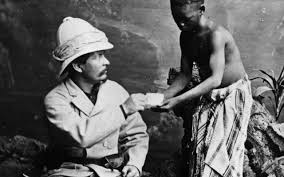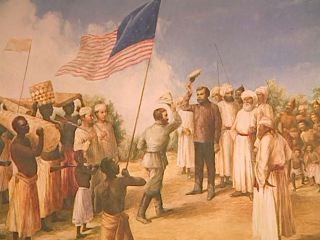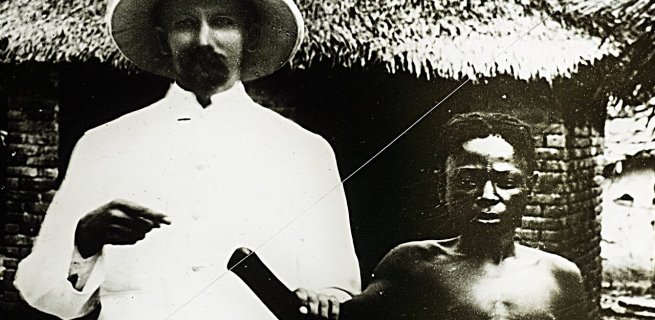On This Day In History: Morton Stanley Sets off on His Famous Africa Expedition
On March 21, 1871, Morton Stanley began his expedition to Africa to Search for Dr. David Livingstone.

In the latter part of the 19th century, both Europeans and Americans were fascinated with Africa, which was popularly known as "the dark continent" at the time.
Livingstone had increased the fervor when he set out on a two-year mission in 1865 to find the Nile River. He also hoped to bring an end to the slave trade which was destroying the community structures of the African population.
For almost six years no one had heard from Livingstone so the Editor of the New York Times decided he would capitalize on this by sending a reporter out there to either find Livingstone or bring back proof of his death.
The colorful figure Morton Stanley was chosen. As a young orphan in Wales he had crossed the Atlantic as part of a crew on a merchant ship. After disembarking in New Orleans, he fought for both the North and South in the Civil War. After its conclusion, he went into the news.
Upon leaving from Zanzibar in March 1871, Stanley led nearly 2000 men into Africa's interior. During the next eight months, they continued searching for Livingstone. Stanley caught dysentary, cerebral malaria and smallpox-and he survived all three.

They finally found a sick and impoverished Livingstone, in November, in the village of Ujiji. When Stanley came to the village a crowd gathered to meet him. Seeing a lone white man with a gray beard within, Stanley held out his hand and stated, "Dr. Livingston, I presume?" Thus, the famous phrase was coined.
Stanley entreated Livingstone to come back with him, but he refused, choosing to stay and continue in his mission. He died 18 months later in what is now Zambia. His body was collected, embalmed, and returned to Britain where he was interred at Westminster Abbey
According to Stanley the two had become friends, but it is hard to believe that Livingstone would have approved of Stanley working for King Leopold who turned out to be the most brutal of African colonizers.

Stanley was instrumental to the Monarch's success in taking over all of the country's resources and establishing the "Congo Free State," a Belgium controlled colony. After helping to enslave a large number of people, he returned to Britain where he became a member of Parliament. He died in 1904.
Sources:
https://www.britannica.com/biography/David-Livingstone
Congratulations @lindseybreegan! You received a personal award!
Click here to view your Board
Congratulations @lindseybreegan! You received a personal award!
You can view your badges on your Steem Board and compare to others on the Steem Ranking
Vote for @Steemitboard as a witness to get one more award and increased upvotes!